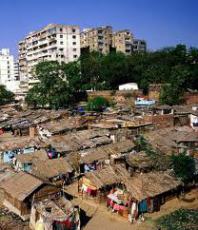 The Urban Affairs Association (UAA) is the international professional organization for urban scholars, researchers, and public service professionals. The Urban Affairs Association is dedicated to creating interdisciplinary spaces for engaging in intellectual and practical discussions about urban life. Through theoretical, empirical, and action-oriented research, the UAA fosters diverse activities to understand and shape a more just and equitable urban world. (Adopted March 12, 2010) UAA is the successor organization to the Council of University Institutes for Urban Affairs, formed in Boston in 1969 by a group of directors of university urban programs. As urban affairs developed as a professional and academic field, the need for an organization that welcomed urban faculty, professionals, and students as well as urban program directors and deans became increasingly apparent. In recognition of this need, in 1981 the organization’s name was changed to the Urban Affairs Association. Today, UAA includes over 600 institutional, individual, and student members from colleges and universities throughout North America, Europe and Asia. Among its other activities, UAA sponsors the Journal of Urban Affairs, a refereed annual journal, publishing manuscripts related to urban research and policy analysis of interest to both scholars and practitioners. All UAA members receive the Journal of Urban Affairs as part of their membership fee.
The Urban Affairs Association (UAA) is the international professional organization for urban scholars, researchers, and public service professionals. The Urban Affairs Association is dedicated to creating interdisciplinary spaces for engaging in intellectual and practical discussions about urban life. Through theoretical, empirical, and action-oriented research, the UAA fosters diverse activities to understand and shape a more just and equitable urban world. (Adopted March 12, 2010) UAA is the successor organization to the Council of University Institutes for Urban Affairs, formed in Boston in 1969 by a group of directors of university urban programs. As urban affairs developed as a professional and academic field, the need for an organization that welcomed urban faculty, professionals, and students as well as urban program directors and deans became increasingly apparent. In recognition of this need, in 1981 the organization’s name was changed to the Urban Affairs Association. Today, UAA includes over 600 institutional, individual, and student members from colleges and universities throughout North America, Europe and Asia. Among its other activities, UAA sponsors the Journal of Urban Affairs, a refereed annual journal, publishing manuscripts related to urban research and policy analysis of interest to both scholars and practitioners. All UAA members receive the Journal of Urban Affairs as part of their membership fee.
Read more: http://urbanaffairsassociation.org/about/mission/

